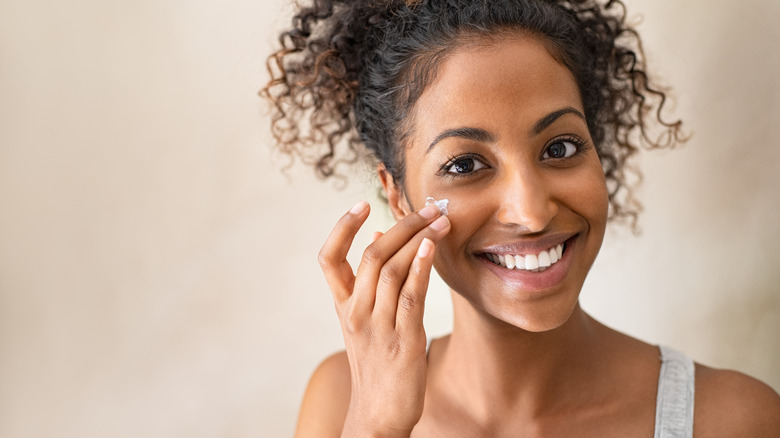What Is ATP And How Does It Help Fight Wrinkles?
The skincare industry is in a constant crusade to rid the world of fine lines and wrinkles. It's impossible to keep up with what new ingredients they've discovered to renew and refresh skin. But don't worry, that's where we come in. One ingredient you should have on your skincare shopping list is ATP.
If you remember anything from high school biology (we barely do), you might remember learning about a special molecule called "adenosine triphosphate." This is the long fancy word that ATP is an abbreviation for. Dr. Geeta Yadav, board-certified dermatologist, explains to The Zoe Report that ATP is the main energy source all cells need to carry out their biological processes. So when you give additional ATP to your skin cells, it may help them renew and restore their appearance. "You can think of it as gas for a car," says board-certified dermatologist Dr. Ramya Garlapati to InStyle.
What does ATP do to the skin?
So how does this very nerdy-sounding substance reduce wrinkles and make you glow? InStyle reports that aging reduces your skin's supply of ATP. With less of this energy source to kickstart its everyday functioning, your skin can appear duller and lose its vibrancy.
Dr. Ramya Garlapati tells InStyle that ATP directly impacts fibroblasts in the skin and "fibroblasts are the cells responsible for collagen production." Per Healthline, when our collagen levels deplete, we see our skin begin to wrinkle and lose its brightness. Rather than trying to integrate foreign collagen into the skin, as many collagen supplements and creams aim to do, ATP instead targets the skin's natural production process of collagen.
By replenishing our collagen supply using ATP, Healthline reports that we can see improvements in sagging and increase our levels of elasticity. InStyle also notes that ATP provides anti-inflammatory effects, supporting the repair of distressed skin.
Does ATP actually work?
Like any new miracle ingredient, this all sounds great. However, the question we're sure you want to know is — does it really work? In her interview with The Zoe Report, Dr. Geeta Yadav mentions that there has not been an extensive amount of research proving the efficacy of topical ATP. However, don't get discouraged. Despite this, she also notes that there is a good amount of evidence that it can improve your complexion. In a 2018 study published by Biomedical Dermatology, the use of ATP in middle-aged women's skincare routines did, in fact, reduce physical signs of aging in their skin.
If it is ineffective, it might not be the ATP itself but rather the ingredients it is paired with. Healthline explains that ATP is impactful when it reaches your second layer of skin, called the dermis. So to ensure it reaches the dermis, it is important to find a mixture to allow the ATP molecules to penetrate the skin's surface, says Healthline.


